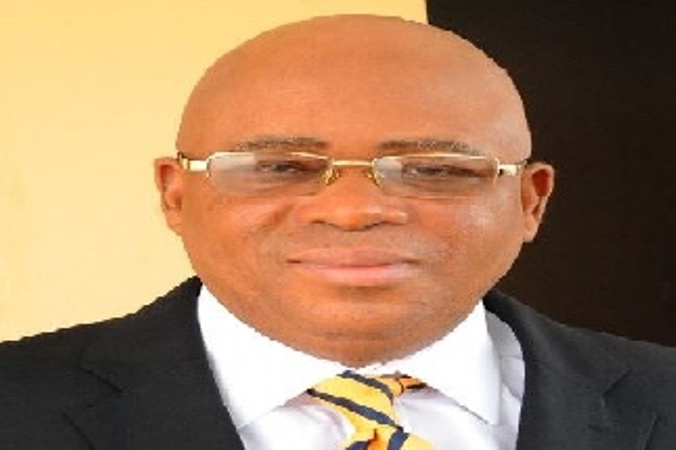Border Closure: Obasanjo Backs Buhari
Former President Olusegun Obasanjo, Tuesday, spoke in favour of Nigeria’s partial border closure with neighbours, asking Benin Republic to change its ways for a harmonious bilateral relationship between the two countries.
Obasanjo spoke on a day former Director of Kenyan Anti-Corruption Commission, Prof. PLO Lumumba, said in Lagos that Nigeria was too big to be threatened by smaller neighbouring countries to resort to the closure of its land borders.
The former President made the remark at a briefing in Addis Ababa, Ethiopia, on the sideline of the two-day Policy Dialogue of African Business Associations on Implementing the African Continental Free Trade Area, AfCFTA, Agreements, co-organized by the African Union (AU), African Development Bank, AfDB, the African Export – Import Bank, AFREXIMBANK, among others.
Obasanjo, who is the chairman of Afro-Champion Initiative and Coalition of Dialogue Africa, CoDA, Board of Directors, explained that Benin’s notoriety was not new, noting Nigeria had for long been enduring the practice which undermined its economic well being.
He said: “It happened when I was President of Nigeria. I called the then Benin President, Nicephore Dieudonne Soglo, to let us meet at any of our border posts over the issue.
“We eventually met at Badagry (in Nigeria) where we agreed that Nigerian Customs would be stationed in Benin. They (the Nigerian Customs) are still there. We don’t have issues with goods manufactured in Benin, they are welcome.
But as long as Benin allows dumping of goods, there will always be a problem with Nigeria.’’
He said the Economic Community of West African States, ECOWAS, was not created to allow one country to turn itself to a dumping ground. On AfCFTA, Obasanjo said the execution of the agreements was crucial to its success and sustainability, noting that the intense support AfCFTA has received from various member states was a clear indication of its importance.
“CoDA is highly engaged in seeking success of AfCFTA and other multilateral agreements. CoDA’s work is informed and guided by the notion that no one has a monopoly of ideas,” he said.
He urged more actions, beyond words, adding that with fragmented 55 markets, Africa would remain a small player in the global market place.
In his welcome address, AU Commissioner, Department of Trade and Industry, Mr Albert Muranga, called for a change of attitude on the continent, if the goals of AfCFTA were to be attained.
“A new mindset is necessary. One country should not be going west and the other going east. All of us should be going in one direction. For AfCFTA and our dreams of African integration to meet with success, it requires cooperation from all stakeholders,” he said. Muranga also restated the fears as espoused by members of the organised private sector on the dangers ahead of AfCFTA, assuring that such fears also enjoyed the attention of framers of the AfCFTA initiative.
According to him, such fears include stability, predictability, fairness, corruption and enabling the environment. Lumumba on border closure Meanwhile, former Director of Kenyan Anti- Corruption Commission, Prof. PLO Lumumba, has said that Nigeria was too big to be threatened by its smaller neighbours, stressing there was no need for the federal government to resort to the closure of land borders. Fielding questions from newsmen during the 6th Giddy Jidenma Foundation public lecture in Lagos, Lumumba said: “I can understand why Nigeria is closing its borders but I am of the view that Nigeria is too big to be threatened by Benin.
“The apparent losses which we are seeing in the early days which involve abuse of Nigeria’s laws can be dealt with through regulations. If regulations are put in place in a proper manner, there would be no need to close the borders.
“There are three ways to deal with it. First, the short term way of dealing with it is addressing the regulatory issues which present themselves as an existential threat to Nigeria’s market.
“The medium-term is to look at the movement of goods and determine the source so that Nigerian laws are not abused and to protect the Nigerian industries, be it agriculture or textile. “I agree with the government that when borders are porous, individuals take advantage of it to commit criminality, but I believe borders can be open without being porous.
“In other words, you institute measures that ensure that those malcontent are removed from free entry and yet you do not undermine trade. I understand that this lesson that has been learnt now will help Nigeria to control its boundaries without undermining trade, going forward.”
While reacting to claims of Benin and Niger not complying with the MoU signed with the federal government in 2014, 2015, 2016, 2018 and 2019, as reported by Nigeria’s Minister of Information and Culture, Alhaji Lai Muhammed, as well as the ECOWAS transit protocol, Lumumba said: “If there is Memorandum of Understanding, MoU, signed, fidelity to the MoU is critical.
“If they don’t comply with the MoU, then there must be consequences. But these consequences must be the one brought to bear so that not everyone suffers from those who have not complied. In other words, compliance to MoU is critical for the benefit of all.”





